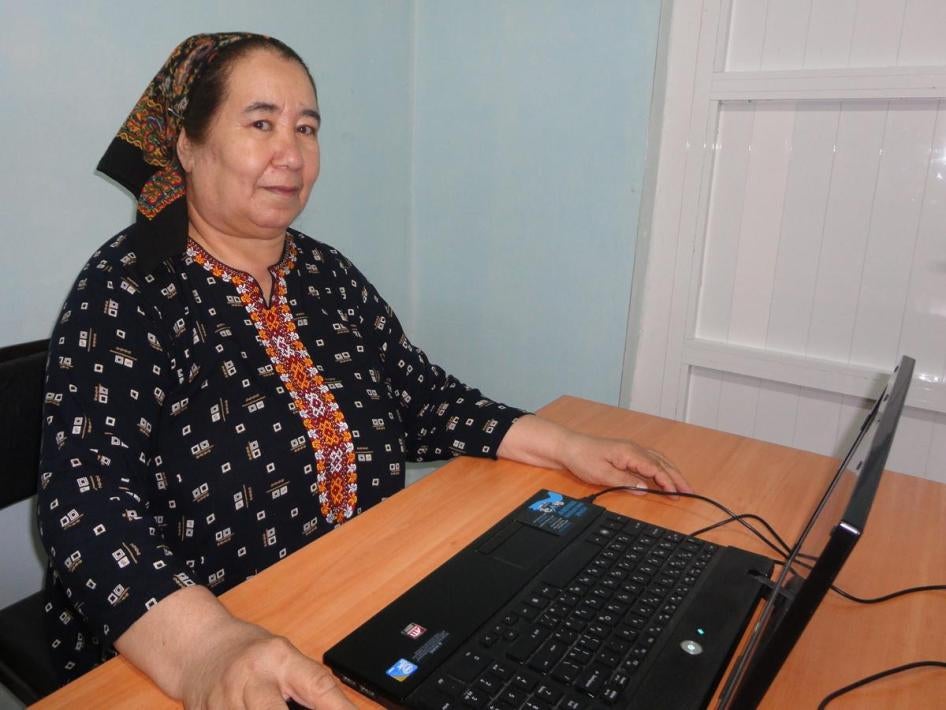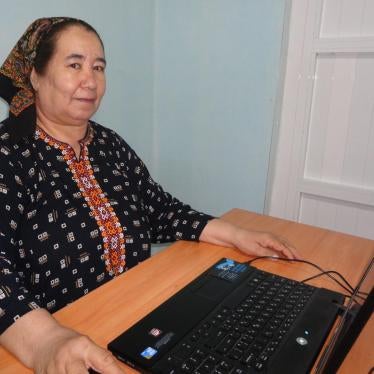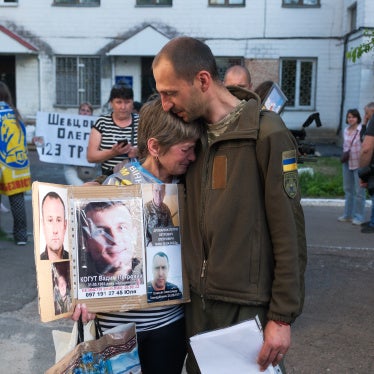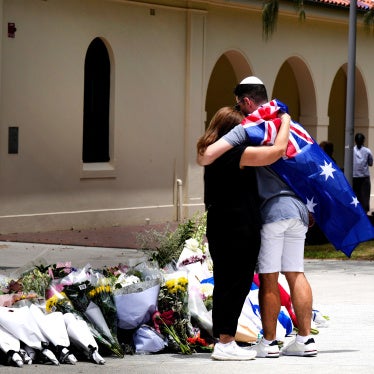(Berlin) – An independent journalist, Soltan Achilova, has been the victim of harassment and a series of targeted attacks and death threats, Human Rights Watch and the Turkmen Initiative for Human Rights (TIHR) said today. With the Asian Indoor and Martial Arts Games to be hosted in Ashgabat from September 17 to 27, the leadership of the Olympic Council of Asia (OCA), the owner and organizer of the games, should urge the Turkmen government to ensure that all journalists can do their work without fear of retaliation ahead of, during, and after the games.
In an August 4, 2017 joint letter to the Olympic Council of Asia, TIHR, a Vienna-based nongovernmental organization, and Human Rights Watch urged the Olympic Council of Asia to speak out publicly and privately against the attacks and death threats, and to remind the government that the Olympic Charter demands respect for media freedom. The Olympic Council of Asia needs to address the Turkmen government’s clampdown on independent voices, call for the release of unjustly imprisoned journalists, and secure guarantees from the government that it will ensure full press freedom.
“The Olympic Council of Asia has a responsibility to apply and uphold the Olympic Charter, which includes principles of press freedoms and human dignity,” said Farid Tukhbatullin, director of TIHR. “It should press the Turkmen government to ensure that Achilova and other independent correspondents like her can carry out their work without reprisal or undue interference.”
Achilova, 67, is a journalist with Radio Azatlyk, Radio Free Europe/Radio Liberty’s Turkmen service, the only independent media source on Turkmenistan that offers regular Turkmen-language news reporting. Her reporting covers a range of social issues, such as drinking water shortages, problems in the national healthcare system, and the like. In recent years, Achilova has repeatedly been intimidated and harassed for her work, as have her fellow Radio Azatlyk colleagues.
From July 27 to 31, men Achilova did not know severely harassed and intimidated her, including with death threats, demanding that she stop taking photographs, which is a routine part of her journalism work. In one incident, on July 31, a man in civilian clothes claimed that he was from the police and that he was instructed to prevent Achilova from taking any photographs. In three other episodes, the men physically prevented her from taking harmless photographs by grabbing and, at one point, twisting her arms. In one of the incidents, the assailant threatened to “destroy” Achilova and her camera and said she had “one foot in the grave,” and that she was “already dead.”
The Turkmen media operates in a very restrictive environment. There is absolutely no media independence or pluralism. Foreign media often cannot work in Turkmenistan, and local contributors to foreign outlets have been harassed, intimidated, and jailed, in an effort to silence them.
In one case, Gaspar Matalaev, an Alternative Turkmenistan News (ATN) activist, remains imprisoned on false charges of fraud that were brought in retaliation for his work monitoring state-sponsored forced labor in the cotton harvest. In another, Saparmamed Nepeskuliev, a freelance contributor to Radio Azatlyk, has been serving a three-year sentence since July 2015 on bogus drug charges, after he took photographs of an amusement park on the Caspian Sea coast.
Internet access in Turkmenistan remains limited and heavily state-controlled. For years, the government has waged a campaign to force people to dismantle their privately owned satellite dishes and subscribe to government-controlled cable television packages that cut them off entirely from alternative sources of information.
Turkmenistan’s history of severe restrictions on media freedoms and persistent harassment of independent correspondents and activists inside and outside Turkmenistan make it clear that the latest attacks against Achilova are part of the authorities’ efforts to silence critics, TIHR and Human Rights Watch said.
Turkmenistan’s failure to allow for media freedoms is a serious violation of its obligations under article 19 of the International Covenant on Civil and Political Rights (ICCPR), which protects the right to freedom of expression. Turkmenistan has been a party to the ICCPR since 1997.
Human Rights Watch has written to the Olympic Council of Asia in December 2016 and February 2017, warning about repression in Turkmenistan, without response.
“The Olympic Council of Asia should act now to get the Turkmen government to change its miserable treatment of media and dire human rights situation ahead of the games,” said Hugh Williamson, Europe and Central Asia director at Human Rights Watch. “If the OCA doesn’t send a clear message to the government to stop intimidation and harassment of critics, the games risk being overshadowed by severe human rights violations.”







